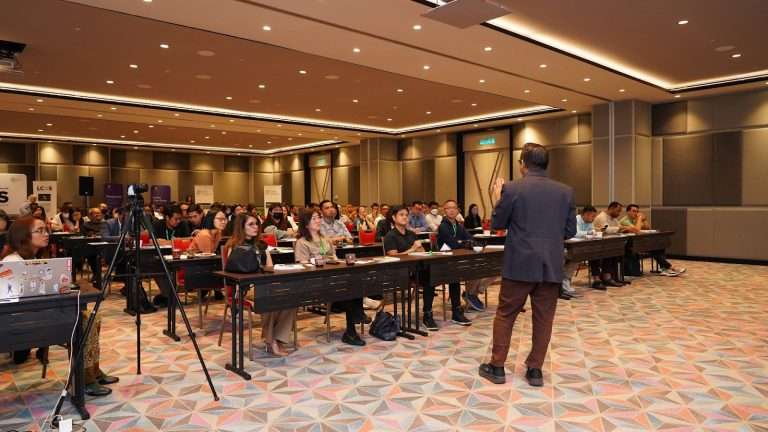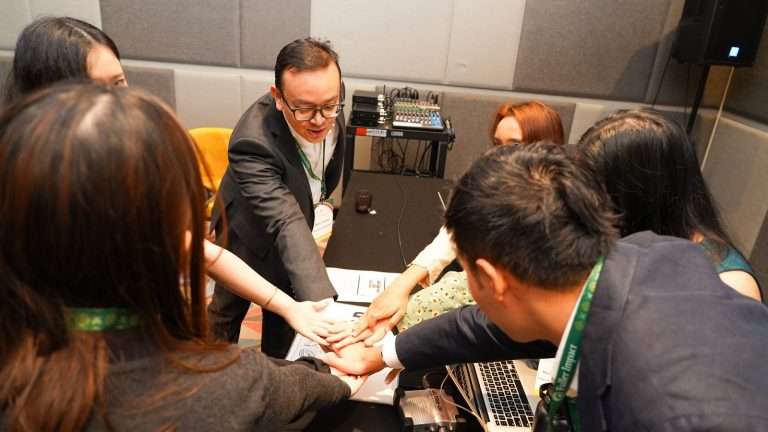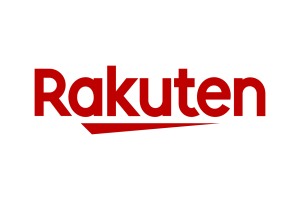Empowering Employees for Sustainable Innovation: A Corporate Perspective
Sustainability has transcended buzzword status to become a crucial consideration for companies aiming for long-term success. One of the key drivers of sustainable practices within an organisation is its workforce. Employees, armed with the right knowledge and motivation, can be powerful catalysts for change. In this blog, we’ll explore how companies can foster a culture of sustainability within their workforce, focusing on training programs, incentives, and collaborative approaches that empower employees to contribute to sustainable innovation within their respective roles.
Creating a Foundation: Training Programs for Sustainable Mindsets
Empowering employees for sustainable innovation starts with education. Companies are increasingly recognizing the need for training programs that instill a deep understanding of sustainability principles. These programs not only raise awareness about the environmental and social impact of business activities but also equip employees with the knowledge needed to integrate sustainability into their daily tasks.
These training initiatives should cover a range of topics, from the basics of environmental conservation to the broader concepts of corporate social responsibility (CSR) and sustainable business practices. Workshops, seminars, and online courses can be effective tools for delivering this education. For instance, employees can learn about the life cycle analysis of products, waste reduction strategies, and the importance of sustainable sourcing.

Incentivizing Sustainable Actions: Aligning Personal and Corporate Goals
Training lays the groundwork, but to truly embed sustainability into the company culture, incentives play a pivotal role. Employees are more likely to engage in sustainable practices when there are tangible rewards tied to these efforts. Companies can design incentive programs that align personal and corporate goals, creating a win-win scenario.
This can take various forms, such as performance bonuses linked to sustainability targets, recognition programs for outstanding contributions to sustainable initiatives, or even non-monetary rewards like extra days off or professional development opportunities. By making sustainability a part of performance metrics, companies signal that they value and prioritize sustainable practices.
Fostering Collaboration: Breaking Down Silos for Collective Impact
Sustainable innovation is seldom the result of individual efforts; it thrives in collaborative environments where diverse perspectives come together. Breaking down silos within an organisation is critical for fostering a culture of sustainability. Cross-functional teams that bring together individuals from different departments can generate innovative solutions to complex sustainability challenges.
Collaboration can extend beyond the organisation as well. Companies can engage with external stakeholders, such as suppliers, customers, and local communities, to gather insights and co-create sustainable solutions. By involving employees in these collaborative efforts, companies not only harness their collective creativity but also instill a sense of shared responsibility for the broader impact of their work.

Empowering Through Leadership: Leading by Example
Leadership plays a pivotal role in shaping organisational culture. When leaders prioritize and exemplify sustainable practices, employees are more likely to follow suit. Transparent communication about the company’s sustainability goals, progress, and challenges creates a sense of shared purpose.
Additionally, leadership should actively seek and value input from employees. Encouraging an open dialogue ensures that employees feel heard and that their ideas for sustainable innovation are considered. This inclusivity not only empowers individuals but also taps into the diverse perspectives needed for comprehensive sustainability strategies.
Measuring Impact: Establishing Key Performance Indicators (KPIs)
To ensure the effectiveness of sustainability initiatives, it’s essential to establish Key Performance Indicators (KPIs) that align with the company’s overall goals. These KPIs can cover a range of areas, from carbon footprint reduction and energy efficiency to waste reduction and employee engagement in sustainability programs.
Regularly measuring and reporting on these KPIs not only provides transparency but also allows for continuous improvement. Companies can use this data to identify areas of success, areas that need improvement, and adjust strategies accordingly. It also serves as a means of accountability, both internally and externally.
Case Study: Pioneering Sustainable Innovation at Rakuten
In the pursuit of sustainable innovation, leading companies are increasingly recognizing the power of employee-driven initiatives. Rakuten, a global innovation company, has taken this concept to new heights with its transformative internal competition, the “Green’Ovation Challenge.”
This case study explores how Rakuten empowers its workforce to become sustainability entrepreneurs through specific training programs, incentives, collaborative efforts, and leadership initiatives.

Training Programs and Skill Enhancement
Rakuten’s commitment to innovation is reflected in its focus on skill development. The Green’Ovation Challenge encourages employees to think beyond their traditional roles and equip themselves with skills necessary for sustainable entrepreneurship. Teams received support from coaches in areas such as communications, project management, and environmental impact, ensuring a holistic approach to their projects.
Incentives Driving Innovation
Collaborative Efforts and Diversity
The competition’s unique structure offers more than just recognition; it provides a tangible opportunity for winning ideas to become a reality. The winning project is not only implemented but plays a vital role in Rakuten’s overarching sustainability journey. This incentive, coupled with the prospect of making a genuine impact, motivates employees to actively engage in sustainable innovation.
The Green’Ovation Challenge breaks down silos and fosters collaboration among employees from different business units and countries. The requirement for diverse teams ensures a mix of talents and perspectives. This diversity sparks creativity and leads to well-rounded, innovative solutions. The collaborative spirit is evident in the formation of cross-functional teams and the extensive networking that occurs throughout the challenge.
Leadership Initiatives Driving Cultural Change
Leadership at Rakuten plays a pivotal role in driving the success of the Green’Ovation Challenge. Senior leadership from various Rakuten businesses actively participates in the jury process, emphasizing the importance of sustainability at the highest levels. Statements from leaders, such as Nicholas Fletcher and Yuko Oki, highlight the role of sustainability in uniting employees and fostering a sense of purpose and belonging.
The Green’Ovation Challenge’s inaugural winner, Team Go Green Together, exemplifies how Rakuten’s approach translates into real-world impact. The team’s winning pitch revolves around gamifying and socializing individual carbon footprints. By creating an app that encourages sustainable actions, the team addresses environmental impact on an individual level, sparking a collective movement towards a greener future.
A Lesson in Corporate Empowerment
Realizing Sustainable Innovation: Team Go Green Together's Success Story
Rakuten’s Green’Ovation Challenge offers a valuable lesson for companies seeking to empower employees for sustainable innovation. By combining training, incentives, collaboration, and leadership support, Rakuten has created an environment where employees actively contribute to addressing global challenges. The challenge not only drives innovation but also fosters a culture of continuous learning, diversity, and purpose-driven collaboration.
Empowering employees for sustainable innovation is not just an ethical choice; it’s a strategic imperative for businesses looking to thrive in a rapidly changing world. By investing in training, incentives, collaboration, and leadership, companies can harness the collective power of their workforce to drive meaningful and lasting change. As employees become active participants in the journey towards sustainability, they contribute not only to the success of their organisations but also to the well-being of the planet and future generations.


